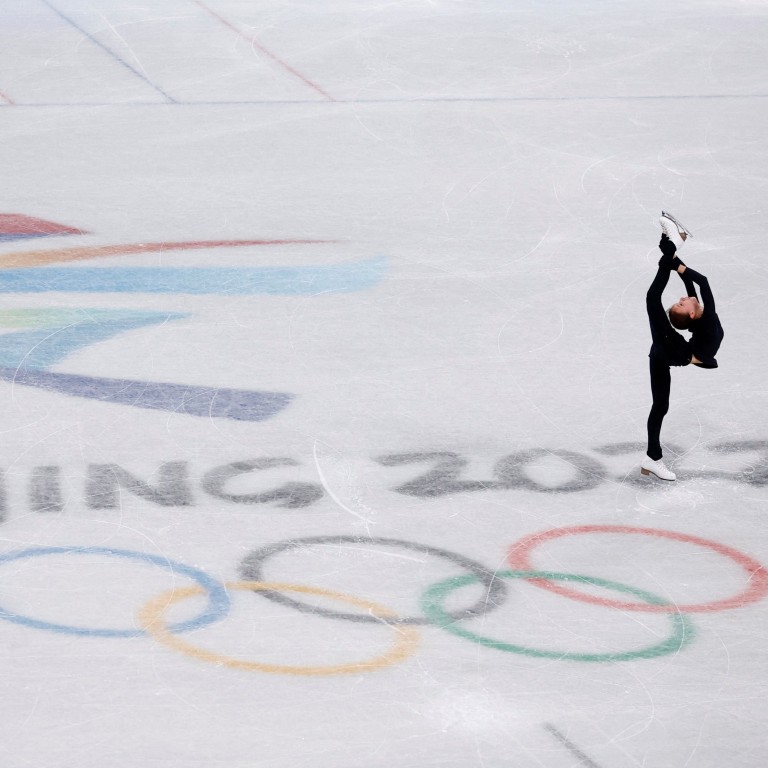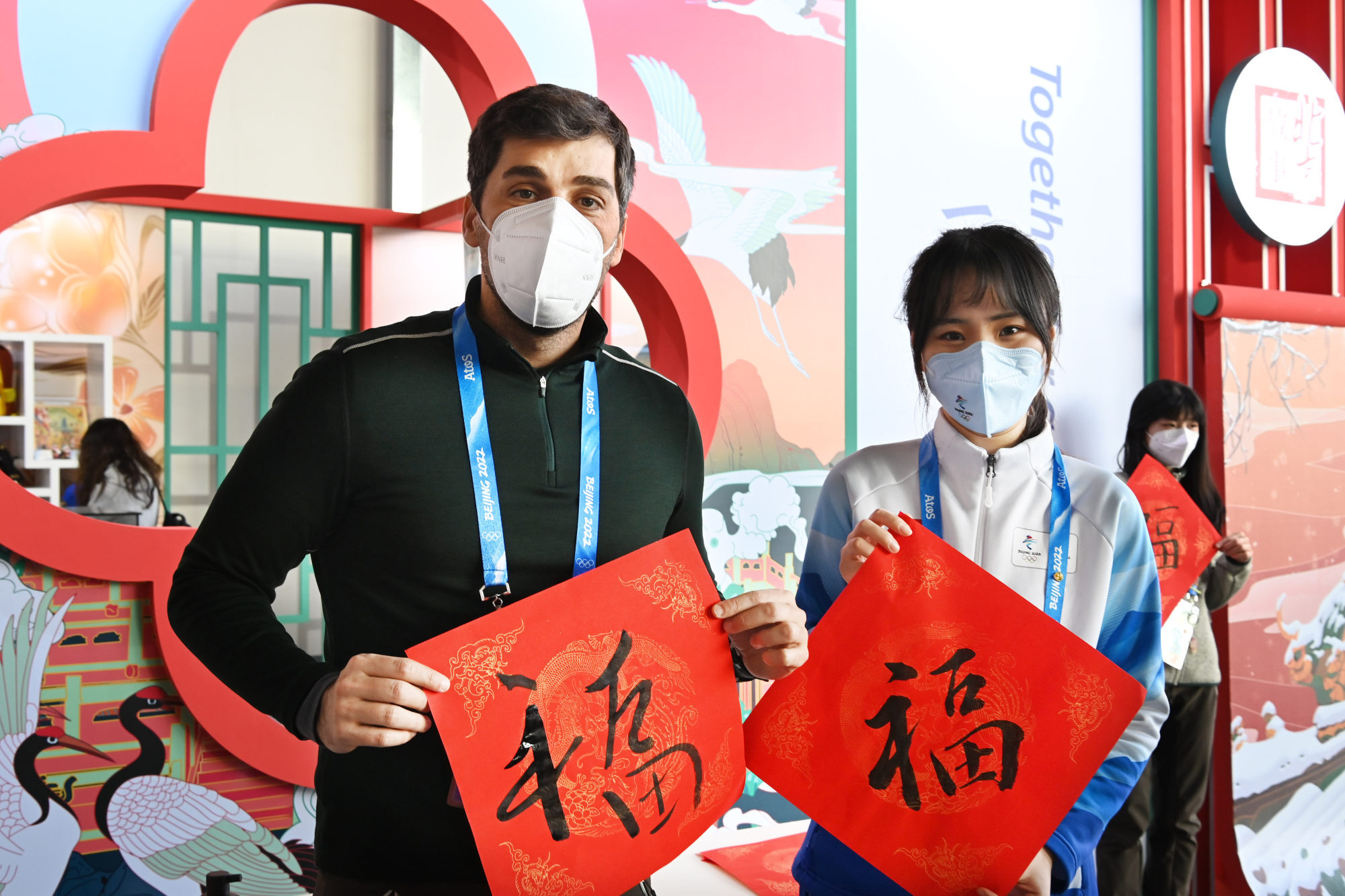
Beijing Winter Olympics: China doesn’t need foreigners promoting its own culture at the Games
- Chinese state media got foreign athletes and dignitaries to speak Mandarin on camera and try activities such as Chinese calligraphy and dumpling-making
- Given China’s increasing eagerness to prove its language and culture are of global importance, the stunt gives the impression of an inferiority complex or even misplaced nationalism
The Beijing Winter Olympics officially began today, with the Chinese media awash with Lunar New Year greetings from foreign dignitaries and athletes.
State media featured Ecuadorean president Guillermo Lasso, athletes from Canada, Slovakia, Slovenia and the United States wishing Chinese nationals a happy and prosperous new year, in Mandarin.
Other athletes were seen trying their hands at Chinese calligraphy and making jiaozi, or Chinese dumplings – a traditional dish often served during the festive season.
Firstly, kudos on them for being a good sport. I am all for cross-cultural participation and appreciation, and engaging in the understanding of all things Chinese.
But these expressions of linguistic and cultural enthusiasm would be more meaningful if they were spontaneous and unprompted, rather than orchestrated for the cameras.

For China, using foreigners to promote its soft power seems to have become a ritual. As the country’s influence grows, the dominant narrative as conveyed in popular media in recent years is that Chinese culture will also become more appealing to people around the world.
The narrative is not inaccurate, as many foreigners have indeed been drawn to learn Mandarin and aspects of Chinese traditions to better understand and do business with China.
In 2016, President Xi Jinping added “cultural confidence” as a fourth pillar for driving socialism with Chinese characteristics. “To revive the nation, we must be confident in our path, in our theory, in our system, as well as our culture,” state-owned China Daily quoted him as saying in a speech.
While the Olympics is an event that encourages intercultural exchanges, given China’s increasing eagerness to create an impression domestically that foreigners are euphoric about its language and culture, the exercise involving participants of the Winter Games not only comes across as contrived, it gives the impression of an inferiority complex or even misplaced nationalism.
Chinese philosophy, literature and culture – from its architecture to music, dance and martial arts – have influenced the world in the past and will continue to do so in the future.
In December, Chinese vice-minister of education Tian Xuejun said more than 4,000 institutions around the world were offering Chinese-language courses, and there were an estimated 25 million people learning Chinese.
Beijing need not constantly resort to trotting out foreigners rolling their tongues around the diverse tones of Mandarin, or be asked to experiment with different aspects of Chinese culture.
The strength and vitality of the culture will be its natural magnet, and the process of generating linguistic and cultural interest should not be excessively state managed, or worse, clumsily orchestrated.

